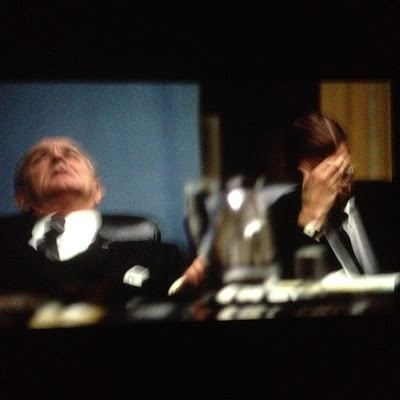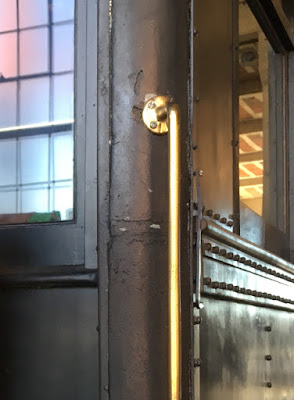In 1969, I was Student Council President at our high school, and my buddy Doug Lambert was President of the Key Club.
When I moved across town to LSU, Doug and I were roomies for awhile and there was a lot going on on at LSU at the time.
There were, in fact some deep changes taking place on campuses all across the nation; students were getting more and more involved with politics.
I recently wrote a novel, King of Soul, about all of what was going on during those turbulent times. Take a look at it my website below, or on Amazon.
In 1972, George McGovern was organizing his campaign to challenge Nixon’s presidency. Doug suggested that he and I stand for election in a precinct caucus to represent McGovern as delegates at a state convention, leading up to the the Democrats’ national convention.
Well there wasn’t much of nothin' that I can remember about that, except that McGovern did later get the nomination, but I wasn’t there. He ran against Nixon and lost big-time
. . . which was kinda odd because a couple years later the American people ran Nixon out of the White House because of his shady dealings pertaining to the Watergate break-in and other quasi-illegal activities.
The groundswell of opposition to Nixon that resulted in his exit from office was a little bit like what’s happening to Trump now. However, a lot of the bad feeling about Nixon was probably directly related to his procrastination in getting us out of the war after he promised during the campaign to get us out of it.
Well somewhere in all that hullabaloo I got registered as a Democrat.
I stayed that way for more than a few years, although I was not into politics and voting during the period of my spousal search and subsequent raising of a young family.
Somewhere in the ’80’s, Ronald Reagan went over to Berlin and told Mikhail Gorbachev to tear down that wall. It was a great follow-up to Kennedy’s Ich bin Ein Berliner stroke of genius, so I registered as a Republican, and I stuck with that affiliation for a quite a while.
We used to have a Republican party in this country; it stood for Constitutional law, free enterprise, freedom of religion, low taxes, and a respect for the right of every person and every family to make the best (s)he can out of what (s)he can get without a lot of interference from the government.
But nowadays I get the feeling that the Republican party has disappeared; it has been superceded by a bunch of yessir this and yessir that yes-men who form all their strategies around what the Donald says and what he approves of or does not approve of.
But hey. True leadership requires speaking to all the people all the time, invoking the traditions of this already great nation to inspire citizens to work actively in cross-the-aisle cooperation to solve our problems.
Leadership is not about evaluating policy decisions based upon whether the advisor, inquisitor or reporter is for you or against you based on some vague theory of fake news.
The only good thing that sticks in my mind about this current president is that he ordered our embassy in Israel to be moved to Jerusalem. I have always wanted a President to do that. Good move, there, Mr. President.
Nevertheless . . .
What we need now is a President who will not be distracted by useless judgements re: who is for him or who is against him.
In this present time of covid-crisis, we need a President who can truthfully say, as Gerald Ford did in 1975:
“Our long national nightmare is over.”Oh! if our current President could only manage to make such a declaration legitimately, after actually inspiring us and leading us into paths of healing instead of quibbling over who’s on his side or who’s on Nancy’s side.
We need a President who can say, as Roosevelt did in 1933:
“The only thing we have to fear is fear itself.”So I am declaring my affiliation now as a Demublican.
Maybe I’ll vote for a third-party candidate, as I did last time, or maybe I’’ll find a reason to support the Donald if he’ll straighten up and fly right, or maybe I’ll vote for Joe.
I don’t know.
Donald, see if you can get yourself settled down to actually lead this nation out of the Covid threat, instead of fretting over whether you’ll be re-elected or not, because your paranoid pugnacious politicism is screwing up everybody’s confidence that we can actually defeat this iinvisible monster.
Get your act together.
You too Joe! You might find yourself in the hot seat, come next January.
As Uncle Walter would say, if he were here:
“And that’s the way it is, May 10, 2020.”
King of Soul






















